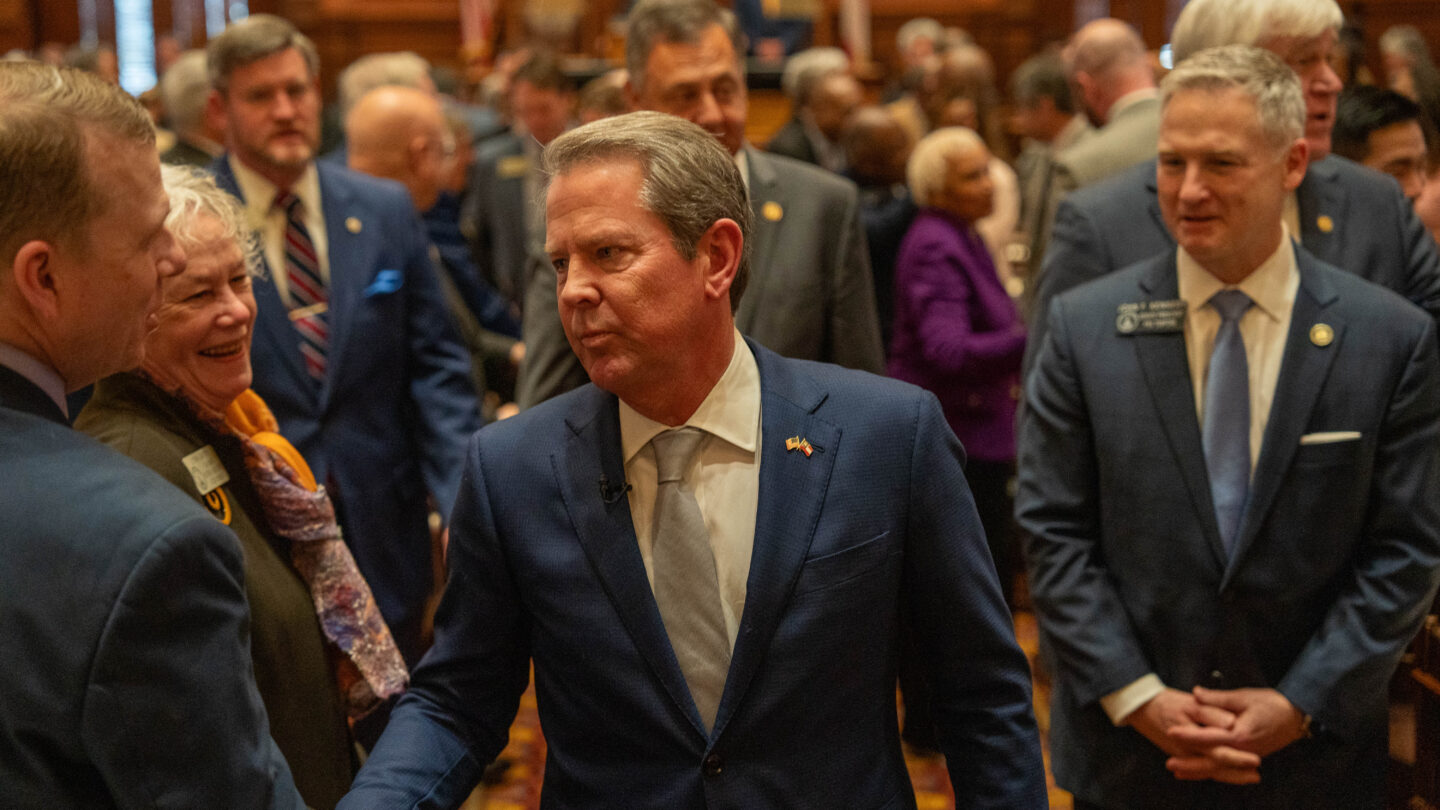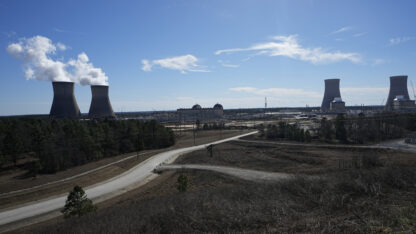This coverage is made possible through a partnership between WABE and Grist, a nonprofit environmental media organization.
Gov. Brian Kemp has vetoed a bill that would have suspended a tax exemption for data centers, a booming industry in Georgia that’s raising concerns over energy and water use.
Data centers are large banks of computer servers that are critical to very-online modern life: email, zoom calls, online banking, telemedicine, streaming entertainment. They also power emerging fields like cryptocurrency and AI.
Thanks in part to a tax exemption on their high-tech equipment, Georgia has become the sixth-largest data center market in the country, according to the industry group the Data Center Coalition.
But during this year’s state legislative session, lawmakers pushed to pause the exemption.
The bill was introduced as Georgia Power put in an emergency request with state regulators for more energy to meet a spike in demand – mostly from data centers, according to the utility.
Data centers use an enormous amount of electricity to run, and that energy is mostly generated by burning planet-warming fossil fuels in Georgia.
In addition, data centers also use large amounts of water to keep cool. That water is usually evaporated rather than returned to the river or water system it came from, says Ben Emanuel, southeast conservation director for the environmental group American Rivers.
He believes that state policy needs to account for these impacts.
“I think as a state, we need to find a way to pause to consider how we balance economic development incentives with managing public resources,” Emanuel said.
The bill passed, but Kemp vetoed it, meaning the tax exemption will stay in place through 2031.
Data Center Coalition president Josh Levi applauded the decision.
“A lot of plans had been laid in order to expand and deploy digital infrastructure in Georgia, and the legislation raised a lot of uncertainty around what would happen to those projects,” Levi said.
Business leaders say uncertainty is a big risk.
“We don’t really have a position on whether or not you should incentivize data centers,” said Georgia Chamber of Commerce president Chris Clark. “The concern is changing the rules in the middle of the game”
The legislation also would have created a special commission to study data centers, including where to locate them based on the state’s existing resources – something advocates like Mark Woodall of the Sierra Club argued the state should have done before creating the tax incentive.
Still, Woodall said he hopes state lawmakers will continue trying to address the issue.
“I think there’s some appetite in the legislature to do something again next year,” Woodall said. “Hopefully the legislature is not gonna give up.”









